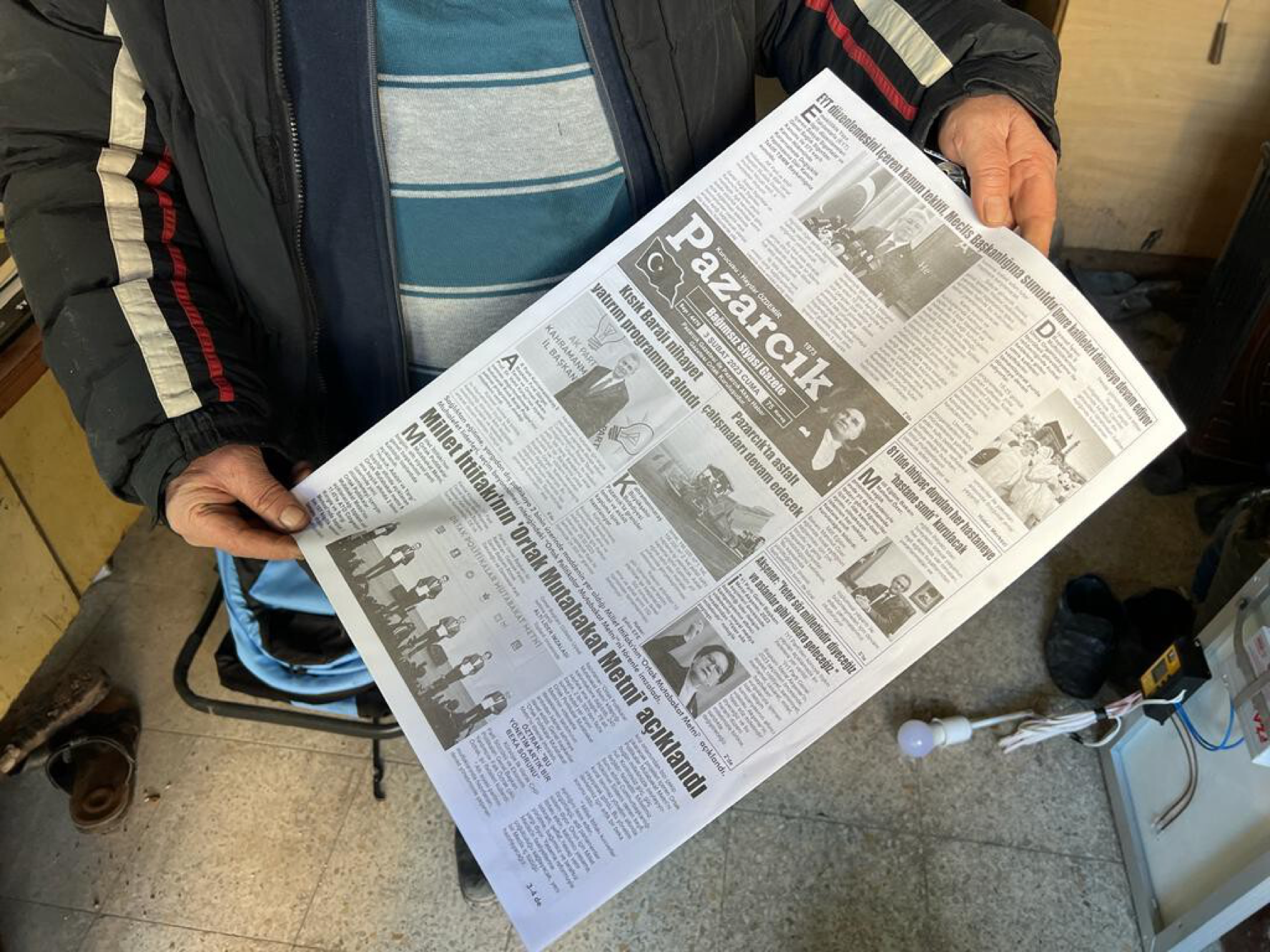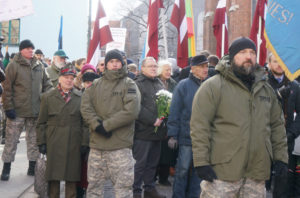In a city with more than 450 deaths, a newspaper’s last edition bears testimony to life before it was forever upended.
Pazarcık, Turkey — Suat Yenipınar was in his fifth-floor apartment with his grandson, when last week’s earthquake woke him up.
“When the earthquake happened I grabbed him and tried to flee the building, but we hit the walls and fell over, so I just covered him with my body to protect him if the building collapsed,” the 60-year-old local journalist recalled. ” After the quake was over, we got out straight away – pieces were falling off the building.”
Yenipınar is living in a tent now next to a Red Crescent mobile kitchen, in this town, close to epicentre of the earthquake.
More than 450 people have died in Pazarcık, which had about 28,000 people living there at the time. It has an official population of about 68,000 people but many residents work abroad, especially in Germany. Now there are only between 4,000 and 5,000 people left, according to estimates of locals.
The earthquake has also killed something else: a local newspaper that Yenipınar published from an office in the building, which is now badly damaged.
Titled Aksu Haber Gazetesi, the newspaper’s last edition ran on February 3, the Friday before the earthquakes that have so far killed more than 41,000 people in Turkey and northwest Syria. It now stands as a reminder of a time frozen in eternity – the last few days before the city was decimated.
“Life in Pazarcık is over after the earthquake, all the buildings have to be demolished,” he said.
He said he remains appreciative of the government. “Thank God to the government, they gave us more than we deserve,” Yenipınar said.
At the same time, he criticised the authorities. He said that he will move to another city when he can because he has no faith that Pazarcık will be rebuilt.
“I don’t trust politicians, today they say one thing, tomorrow another,” Yenipınar said. “I don’t see it being fully rebuilt. The money collected yesterday — let’s wait and see how much of that is wasted.” TV fundraising pulled in more than $6bn on Wednesday.
His apartment walls are cracked, and debris is piled on what used to be his furniture.
Just across the street from his apartment block is rubble — all that remains of a building that collapsed, killing two of Yenipınar’s friends.
‘Shaken like yoghurt’
Yet amid the devastation, home and camaraderie survive.
Ahmet Efe’s house was damaged badly and he is staying in a container house donated by an Istanbul-based health company. The 36-year-old is helping other survivors by delivering solar panel chargers.
“A guy from Kayseri [a central Turkish city] designed it and several companies are working together to produce them,” he said of the chargers. “The lightbulb gives light all night, and you can charge a phone by connecting the USB port to a 12-volt plug.”
Efe said that the earthquake was so strong he could not even shout anything when it happened.
“You know ayran [a yoghurt drink]. Before drinking it you have to shake it. It was like that – being shaken up and down, side to side – for two minutes,” he said. “At that time, I couldn’t do anything, I wanted to shout to my wife but couldn’t.”
Unlike Yenipınar, Efe wasn’t willing to give up on Pazarcık.
“Right now we have no clue what’s going to happen,” he said. “But we can easily rebuild – there is money here, we can do it.”
Reporting by Patrick Keddie in Pazarcık, Turkey




